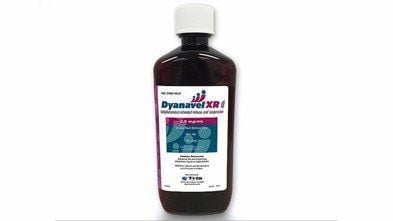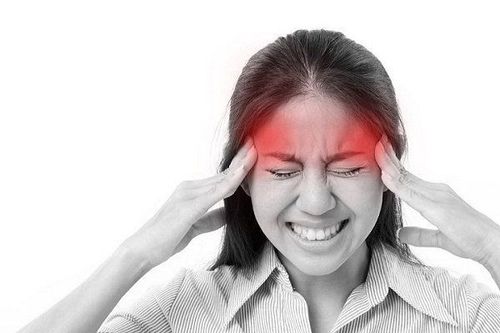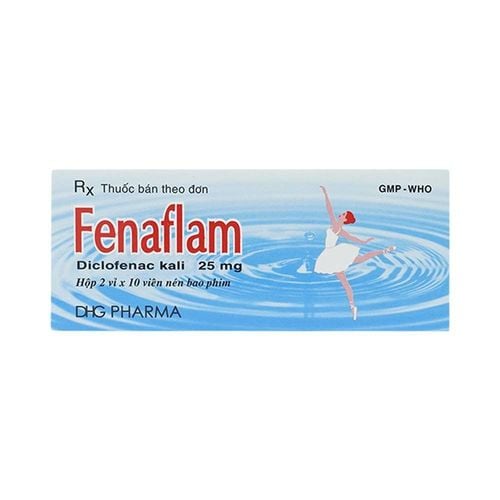This is an automatically translated article.
Today, when people have headaches, dizziness often have the habit of choosing to solve the problem by taking pain relievers, or dizziness headache medicine. But sometimes it's best not to take painkillers, and whether they can harm you if abused. Here are the notes when taking headache medicine that you should know.
Headache medication, or headache medication, is often the first medication recommended by a doctor for migraines and headaches. Many of these medications are over-the-counter or available without a doctor's prescription, while other vertigo headache medications require a prescription.
Note: if you use the reliever medication more than twice a week, you should see your doctor, he or she may prescribe a headache prevention medication. Overuse of medication can actually cause headaches to become more frequent or worsen headache symptoms.
1. Some medications for headaches, dizziness, migraines and cautions when using them.
1.1 Paracetamol Paracetamol can be an effective pain reliever, especially for mild symptoms. It is used alone or in combination with another medicine, such as paracetamol and ibuprofen.
Paracetamol is mostly a safe choice if you are not taking more than 4 grams per day. Too much paracetamol can harm your liver and can cause serious liver damage. Accidental overdose can happen from many different products including paracetamol, so if you are taking more than one medicine make sure you check the label for the ingredients.
Note: Do not take paracetamol for headache more than 15 days per month. Regular use can cause drug abuse headaches.
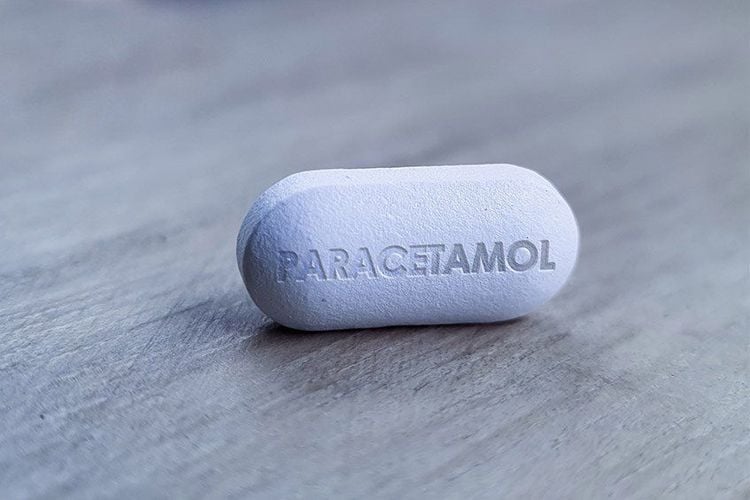
Paracetamol là một trong các loại thuốc thường dùng khi bị đau đầu
NSAIDs are most effective if taken at the first sign of a migraine. It is best not to wait until the headache has worsened before taking an NSAID. Some people find some NSAIDs to be more effective than others, so it's a good idea to try different types to find the one that works best for you. NSAIDs usually require a prescription from your doctor, although you can still buy some over-the-counter in smaller doses. There are risks associated with taking NSAIDs, so ask your pharmacist and read the instructions carefully when taking them.
Note: NSAIDs should not be used for headaches more than 15 days per month. Regular use can cause drug abuse headaches
1.3 Triptans For example, rizatriptan, sumatriptan tablets, and sumatriptan injections
Triptans are a migraine-specific pain reliever. Triptans are most effective if taken at the first sign of a migraine while the pain is still mild. The drug should be given early in the migraine but not during the aura. They work by releasing a chemical in your brain called serotonin. This causes the blood vessels around your brain to constrict. This reverses the dilation of blood vessels thought to be part of the migraine process.
Common side effects of triptans include a feeling of warmth, tightness, tingling, flushing, and a feeling of heaviness in the face, limbs, or chest. Some people also experience nausea, dry mouth and drowsiness. These side effects are usually mild and improve on their own.
1.4 Avoid opioids for migraines Many people with migraines are given strong pain relievers, called opioids, to treat their migraines. Examples of opioid pain relievers include codeine, tramadol, morphine, oxycodone, fentanyl, and pethidine. However, opioids are not preferred for migraine relief for the following reasons:
They can make headaches worse. Using opioids for migraines can cause more headaches and chronic migraines than they do initially. This is called a 'drug abuse headache'. This can happen with all pain medications, but is more likely with opioids. They are not as effective as other migraine medications. There are drugs that are better than opioids for reducing the number of migraine attacks you have and their severity. This includes drugs called triptans, which work directly on the blood vessels in your head to relieve the pain of migraines. They can be harmful. Opioids are powerful drugs that can harm you, including dependence and addiction. Opioids can cause severe withdrawal symptoms if you stop taking them suddenly. People who use high doses for a long time may need to go to the hospital when they stop using them. Opioids, even in low doses, can make you feel drowsy or dizzy. Other side effects include constipation and nausea. Using them for long periods of time can decrease your sex drive and cause depression and sleep problems.
Opioids may be needed in some cases.
In some people, migraine-specific medications don't work. Opioid painkillers can be a short-term 'rescue' option for these people. In this situation, you should not take opioids for more than 9 days per month. At the same time, you and your doctor should continue to focus on other strategies to help you prevent and manage migraines. Long-term follow-up is needed to make sure you don't develop complications from taking opioids.
If you have certain medical conditions, such as certain heart conditions or if you are pregnant, you may not be able to take specific migraine medications. Talk to your doctor if this applies to you.
1.5 Medications to prevent migraines Preventive medications are taken daily to prevent migraine attacks from occurring. They are not used to treat acute attacks. Medication to prevent migraines is an option if you:
Have at least 2 migraines a month Have a significant disability even with appropriate treatment for migraine Unable to get treatment Suitable for migraine headaches. Preventive medications help reduce the severity and length of attacks and how often you have them, reduce disruption to your daily activities, and reduce acute drug abuse. Use daily for effective results. And it can take a few weeks to start working. There are many different types of preventive medicine available. Which one you choose that's best for you depends on things like:
Other medical conditions you have, including high blood pressure, asthma, diabetes, or pregnancy (among others) Effects potential drug side effects Your reaction to preventive medicines if you have used them before. Some medications to prevent migraines:
Beta blockers Examples include propranolol, atenolol, nadolol, metoprolol and timolol.
These drugs are mainly used to treat high blood pressure but they have other uses.
Common side effects include fatigue and depression.
Antidepressants Examples include amitriptyline and nortriptyline .
These drugs are also used to treat depression and other medical conditions.
Common side effects include weight gain, dry mouth, feeling drowsy, fatigue, and decreased libido (sex drive).
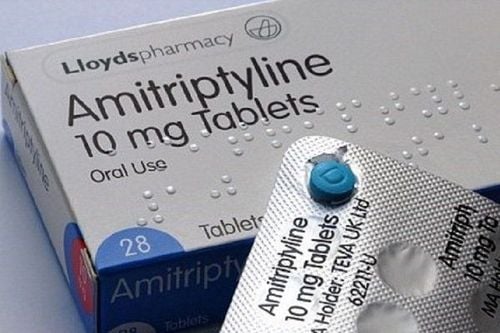
Thuốc chống trầm cảm amitriptyline có thể được sử dụng khi bị đau đầu
Anticonvulsants Examples include topiramate , sodium valproate and gabapentin .
These drugs are mostly used to treat epilepsy, but they have many other uses.
Common side effects include weight gain or loss, drowsiness, and skin rash.
Do not use sodium valproate during pregnancy.
Erenumab (also called Aimovig) Erenumab belongs to a class of drugs known as anti-CGRP antibodies. CGRP stands for calcitonin gene-related peptide.
It works by blocking the action of the molecule CGRP, which is associated with migraines.
Renomab is given monthly in people who have at least 4 migraine days per month.
Common side effects include constipation and allergic reactions
1.6 Drug abuse headaches Drug abuse headaches (recurrence) can occur if you take too much pain medication to treat headaches and migraines. It can feel like a tension-type headache or a migraine. Headaches usually improve within 2 months of stopping medication, but may feel worse before improvement is seen. To avoid this:
Triptan should not be used more than 10 days per month Paracetamol and NSAIDs should not be used for headaches more than 15 days per month. 1.7 Tension headaches Amitriptyline is the most commonly used medication to prevent tension headaches. This is not a pain reliever and therefore does not relieve a headache if a headache develops. It is an antidepressant and must be taken daily for the purpose of preventing headaches. (One effect of some antidepressants is to ease pain and prevent headaches even in people who are not depressed. So even though amitriptyline is classified as an antidepressant, here it is. not used to treat depression). should be increased over time, as the dosage must be built up slowly to avoid side effects. Once the headache has subsided for 4-6 months, amitriptyline can be discontinued. Treatment may be continued if the headache returns (recurs).
If you regularly get tension headaches more than four times a month, it's best to get preventive treatment before the headaches become too frequent. This can prevent frequent cluster tension headaches from becoming chronic tension headaches.
The goal of preventive treatment is to reduce the frequency and intensity of headache attacks. So, with treatment, headaches may not go away completely, but they will develop less and be less severe. Any headache that occurs while taking preventive medicine may be better alleviated than before with pain relievers.
Some other medicines Ketorolac (TORADOL): Digestive upset, drowsiness, dizziness, vision problems, ulcers Meclofenamate (Meclomen): Nausea, diarrhea, indigestion, dizziness, drowsiness Carisoprodol (Soma): Dizziness, drowsiness, nausea, headache, nervousness, skin rash, bleeding Orphenadrine Citrate (Norflex): Dizziness, drowsiness, nausea, dark urine Cyclobenzaprine HCL (Flexeril) ): Dry mouth, drowsiness, dizziness Metaxalone (Skelaxin): Drowsiness, dizziness, headache, nervousness.
2. Pain relievers for episodic headaches
Most cluster headaches appear for a short time, so the use of prophylactic headache medication tends to be more effective than pain reliever.
Some common medications used to manage chronic cluster headaches include:
Calcium channel blockers: verapamil is the most common calcium channel blocker in the treatment of cluster headaches although its primary indication is treat heart disease. Lithium: commonly used to treat bipolar disorder, but lithium can be used alone or in combination with other medications to control cluster headaches. Capsaicin: A topical analgesic in the form of a nasal spray containing capsaicin has also been shown to reduce the frequency of cluster headaches by approximately 50% in clinical trials. Other drugs including ergotamine and prednisone are used to stabilize the condition after a cluster headache. Botulinum toxin A and baclofen commonly used to reduce muscle stiffness are also being studied for their ability to reduce the frequency of cluster headaches.
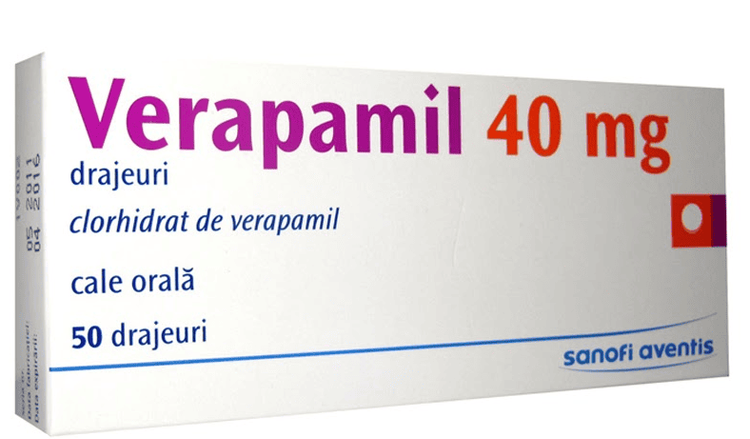
Khi bị đau đầu từng cơn người bệnh có thể được chỉ định dùng verapamil
3. Things to remember when using headache relievers
Over-the-counter headache medications are considered quite safe when used exactly as directed. Over-the-counter headache medications can come in pill, effervescent, and tube forms. In addition to relieving headaches, the drug also has a fever-reducing effect. Tubular antipyretics are more commonly used in children. However, there are some things you still need to be aware of, including:
Learn about the active ingredients in the product to avoid using different brand names but the same active ingredient, leading to an overdose. Do not exceed the dosage recommended on the label. Look carefully at pain relievers and other medications you're taking, and avoid overtreatment. Consult your doctor before taking medicines containing aspirin, ibuprofen or naproxen if you have bleeding or bleeding problems, asthma, upcoming or recent surgery, liver disorders or kidney disease, have a boil or are taking any other NSAIDs. Consult your doctor before taking paracetamol if you have liver or kidney problems.
Please dial HOTLINE for more information or register for an appointment HERE. Download MyVinmec app to make appointments faster and to manage your bookings easily.






